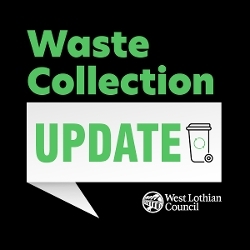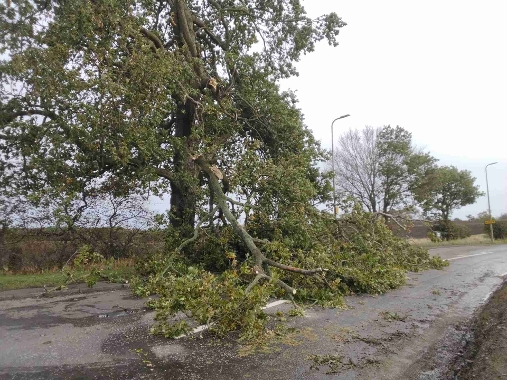
Recent heavy rains meant the overflow chambers - which are regulated and act as a relief point on the water network during storm events - operated at both the Blackburn and East Calder Waste Water Treatment Works. Both sites are run by Veolia on behalf of Scottish Water.
Although the chambers at both works are fitted with screens, such was the volume of material flushed through the network, some debris ended up spilling into the River Almond, leaving some material along the side of the banks.
When the sewer system is operating normally, waste water gets taken to treatment works, where it is cleaned, treated and returned safely to watercourses and the sea. During heavy rainfall storms, more water is getting into these pipes than they can cope with, so they have been designed with a relief mechanism to safely relieve the pressure on the network. These relief mechanisms are known as Combined Sewer Overflows, or CSOs. Storm water is released by an overflow pipe, which spills at designated points, into watercourses or the sea.
Following an inspection Scottish Water has organised for the area downstream from the East Calder works to be checked and cleared with work starting tomorrow (Saturday 20 March).
Anyone with who is aware of any issues connected to a treatment works should raise it directly with Scottish Water via Scottish Water reporting form (opens new window)
Executive councillor for the environment Tom Conn said: "The council is aware of issues with debris in the River Almond related to the Blackburn and East Calder works.
"We understand the concern this causes among local residents and have been in contact with Scottish Water. While the Scottish Environmental Protection Agency (SEPA) is responsible for rivers, we would encourage anyone who notices any issues around the works to raise them directly with Scottish Water so they can investigate.
"West Lothian residents can play their part to preventing treatment tanks becoming blocked by ensuring only pee, poo and paper are flushed down their toilet. Flushing incorrect items - such as wipes, cotton wool and sanitary products - can be a major factor in reducing the capacity at water treatment works, leading to issues like this."
For more information, please visit Scottish Water flush warning (opens new window) and Scottish Water CSOs (opens new window)




